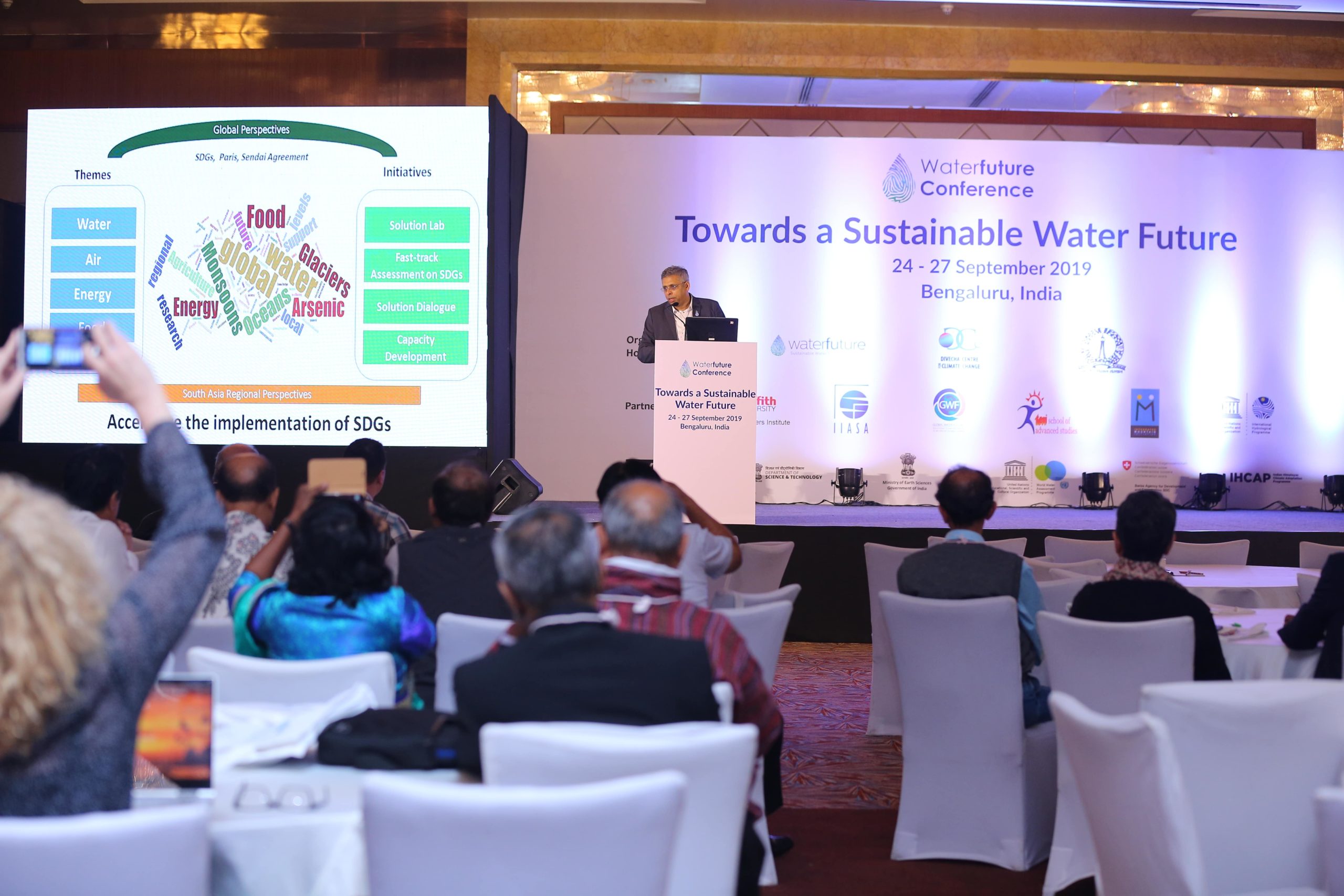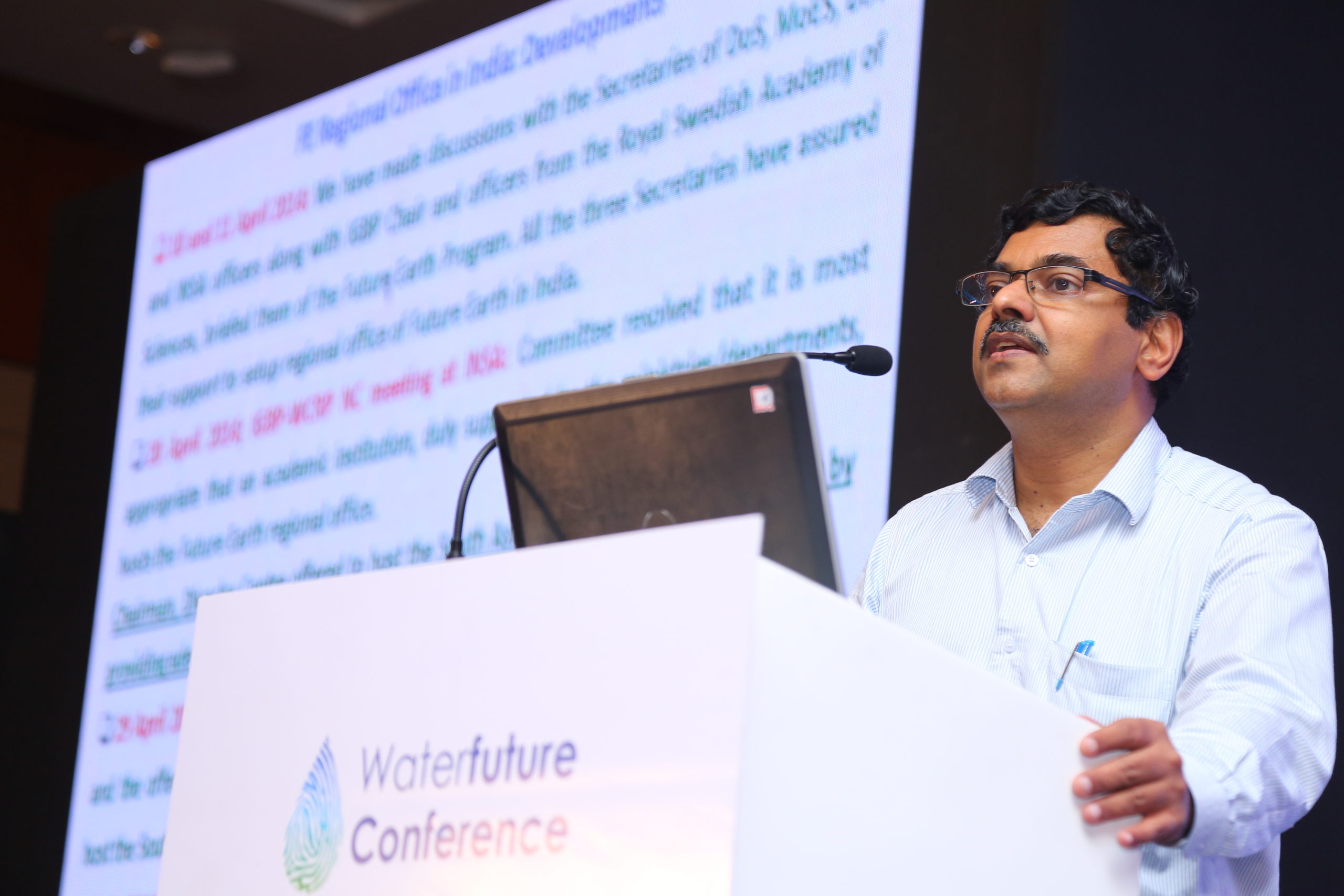Science and policy together have played an outstanding role in addressing and understanding many systemic water risks for decades, but are still unable to trace the combined effect of multiple interactions, feedbacks, and fluxes operating in spaces from planetary to local levels. We need new capabilities today to understand the integrated effects of hydrological, biological, biogeochemical economics, human health and human social behavior at different scales in near real time, which will enable us to analyze, automate, correct, predict and minimize water risks. The combined digital science and technology can provide an opportunity to address many of the water governance challenges facing water scarcity, and add value to water as a scarce resource through increasing distribution and operation efficiency, reduce wastage, extend the life of existing assets, and increase access to better information for better governance. Digital science and technology have been inseparably connected along their path of development, and their innovative combination may provide such new capabilities in water science application to understand the effect of multiple rates of changes from global to local level, tipping points of water crisis, and pinpoint opportunities with respect to time and space, and shape our sustainable water future. This will allow us to address many water governance challenges, and add value to the water as a scarce resource.


Towards this endeavor, an international conference titled ‘Towards a Sustainable Water Future’ was organized by Divecha Centre for Climate Change, Indian Institute of Science and Sustainable Water Future Programme in Bengaluru, India, from 24 to 27 September 2019. The conference addressed the current state of global water resource challenges, future pathways and scenarios, and different technological, institutional solutions to accelerate the implementation of water-related SDGs and the 2030 Agenda targets with an aim of ‘leaving no one behind’. Around 700 participants all across the globe attended the conference thus giving a major opportunity for academics, water practitioners, policymakers, scientists, civil society and government officials to discuss the direction that the global science community should take in order to solve myriad of challenges affecting our water systems in real time, and develop new frontiers for innovative solutions.
The major highlights of the Water Future Conference include signing of MOU between the Water Solutions Lab, Bengaluru (a joint initiative of Divecha Centre for Climate Change and Sustainable Water Futures Programme), and the Bengaluru Water Supply and Sewerage Board (BWSSB), with the aim to establish a collaborative partnership. These would be founded on the principles of collaboration and cooperation, and to provide expertise and resources for undertaking coordinated and strategic research activities that will underpin the sustainable management and use of water in this time of significant global environmental change. The broad aim is to enhance the contribution of strategic scientific and technical research and innovation to the sustainable management for the city of Bengaluru. Other highlights include, setting up a platform for the launch of the Mountain Solutions lab in 2020 with an aim to understand, analyze and address the impacts of climate change on water availability and security for the Indian Himalayan Region.
.
Water Future Conference
- 5 Plenary Sessions
- 16 Themes
- 20 Special Sessions
- 80 Parallel Sessions in total
- 5 High Level Sessions and Meetings
- 800 Participants
- Over 400 abstracts received from 50 countries
.

The outcome of the conference, titled Bengaluru – Budapest Science Action Plan, was an input to a high-level political event called the Budapest Water Summit organized by the Government of Hungary from 15 to 17 October, 2019. The Bengaluru – Budapest Science Action Plan calls for the development of an evidence-informed and value-based digital operating framework for water across scales that will integrate various aspects such as hydrology, biogeochemistry, ecology, human health, culture, social-economic behavior, and institutions along with understanding feedbacks at different scales in near real-time for all stakeholders with an aim to identify, predict and adjust responsible production and consumption behaviors under varying risk conditions based on evidence-based science.